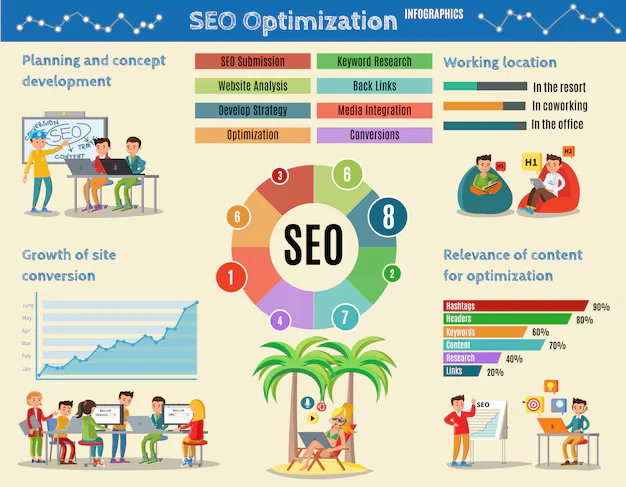In the ever-evolving world of search engine optimization (SEO), staying on top of your website’s performance is essential for maintaining a competitive edge. One of the most effective ways to track SEO progress and diagnose areas for improvement is by using an SEO report card tool. These tools provide comprehensive insights into how well your site is performing in search engine rankings and offer actionable recommendations to boost performance. However, not all SEO report card tools are created equal. To ensure you are using the most effective one, it’s important to look for certain key features that will enhance your SEO strategy.
1. Comprehensive SEO Audits
An essential feature of any good SEO report card tool is the ability to perform comprehensive audits of your website. The tool should be able to analyze various factors that influence SEO performance, such as page load speed, mobile responsiveness, site architecture, and content quality. It should provide detailed reports that break down the audit into specific sections, making it easier for you to identify and prioritize the areas that need improvement. Without this level of thoroughness, it would be difficult to get a clear picture of your website’s overall SEO health.
2. Keyword Ranking Tracking
One of the most critical aspects of SEO is keyword performance. An effective SEO report card tool should offer the ability to track the ranking of your target keywords over time. By monitoring these rankings, you can assess the effectiveness of your SEO efforts and adjust strategies if necessary. The tool should also offer insights into keyword competition and search volume, helping you determine if you need to focus on different keywords or make adjustments to your current ones.
3. Backlink Analysis
Backlinks are one of the most significant ranking factors in SEO. An SEO report card tool should provide an in-depth analysis of your backlink profile, showing the number and quality of backlinks pointing to your website. This feature helps you identify any toxic backlinks that could harm your site’s reputation and SEO rankings. Additionally, it should highlight opportunities to acquire more high-quality backlinks, which can positively impact your site’s search rankings.
4. Competitor Analysis
In order to stay ahead of the competition, it’s important to understand how your website stacks up against others in your industry. A top-tier SEO report card tool will include competitor analysis features. This allows you to compare your site’s SEO performance with that of your competitors. The tool should provide data on their keyword rankings, backlinks, content strategies, and more, so you can develop informed strategies to outperform them.
5. On-Page SEO Analysis
On-page SEO plays a crucial role in optimizing individual pages on your website to improve search engine rankings. A good SEO report card tool should provide an in-depth analysis of on-page factors such as title tags, meta descriptions, headings, keyword usage, and internal linking structure. It should also give recommendations for optimizing these elements to improve both user experience and search engine visibility.
6. Mobile Usability Checks
With more and more people using mobile devices to browse the internet, mobile-friendliness has become a critical ranking factor for search engines like Google. An SEO report card tool should offer mobile usability checks to ensure that your site is fully optimized for mobile users. This includes checking for responsive design, fast load times, and mobile-friendly navigation. A website that performs well on mobile devices can significantly improve your chances of ranking higher in search results.
7. User-Friendly Interface
Even the most powerful SEO report card tool will be ineffective if it is difficult to use. The tool should have an intuitive, user-friendly interface that makes it easy for both beginners and advanced users to navigate. Clear, easy-to-read reports with actionable insights are crucial for making informed decisions. A good tool should also allow you to export the reports in various formats, such as PDF or Excel, for easy sharing with team members or clients.
8. Customizable Reports
Different businesses have different SEO goals, and an SEO report card tool should offer customizable reporting features. This allows you to tailor the reports to highlight the metrics and performance indicators that matter most to your business. Customizable reports make it easier to focus on specific SEO objectives, whether you’re tracking keyword performance, site health, or backlink growth.
9. Integration with Other Tools
An SEO report card tool should integrate with other tools you may already be using, such as Google Analytics, Google Search Console, or social media management platforms. These integrations allow you to pull data from multiple sources and get a more holistic view of your website’s performance.
Conclusion
Incorporating the right SEO report card tool into your SEO strategy can provide invaluable insights into how your website is performing and where improvements can be made. When choosing an SEO report card tool, look for features such as comprehensive audits, keyword tracking, backlink analysis, competitor insights, mobile usability checks, and a user-friendly interface. A powerful SEO report card tool can help you make data-driven decisions that will ultimately lead to better rankings and a more successful SEO campaign.







